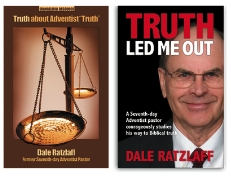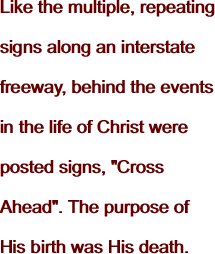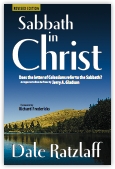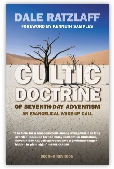 |
|
HOME | PROCLAMATION! MAGAZINE | DEVOTIONALS | STUDIES | LETTERS | ABOUT US | RELATED WEBSITES |
|
HOME / PROCLAMATION! MAGAZINE / 2010 / OCTOBER NOVEMBER DECEMBER / ASK THE PASTOR
October November December 2010
VOLUME 11, ISSUE 4
D E P A R T M E N T S
Ask the PASTOR
Should Christians really participate in Christmas celebrations?
Dale Ratzlaff
Q: Was Christ really born on December 25, and if not, should Christians really participate in Christmas celebrations?
A: My memory of Christmas decorations when I was a child is that about 50% were religious and 50% secular. Now, at least in my neighborhood, manger scenes are about as scarce as was a room at the inn for Joseph and Mary. "Happy holidays" is now the politically correct greeting. "Christmas trees" have magically been transformed into "holiday trees".
These questions and transformations lead us to the more important, underlying issues. What is the message of Christ's birth, and what emphasis should it have in our lives and churches?
Both Matthew and Luke narrate events surrounding the birth of Christ. However, neither Mark nor John even mention it. One would think that Mark, who most believe was a disciple of Peter, would include it in his Gospel, but he does not. Neither does John, Jesus' closest disciple, narrate the nativity. Why?
Matthew had a theological reason to record events surrounding Christ's birth. Writing to the Jews, Matthew shows that Christ is the second, perfect Israel, and thus, after recording the events of Jesus' birth and earliest life, Matthew says, "…that what was spoken by the Lord through the prophet might be fulfilled, saying, ‘Out of Egypt did I call My Son'" (Mat. 2:15).
Luke, too, had a reason to record these events. Luke, the only gentile New Testament author, wrote two well-researched history books: his gospel which recorded the Christ event, and the book of Acts which recounted the development of the Apostolic Church.
From what Matthew and Luke wrote about the birth of Christ we know:
• Mary was to name her son "Jesus, for it is He who will save His people from their sins." (Mt. 1:21).
• Jesus was conceived by the Holy Spirit and was also named Immanuel which means "God with us." (Mt. 1:23).
• The angels said to the shepherds, "Do not be afraid; for behold, I bring you good news of a great joy which shall be for all the people; for today in the city of David there has been born for you a Savior, who is Christ the Lord" (Lk. 2:10-11).
• Simon said of baby Jesus, "Behold, this Child is appointed for the fall and rise of many in Israel, and for a sign to be opposed—and a sword will pierce even your own soul—to the end that thoughts from many hearts may be revealed" (Lk. 2:34, 35).
Matthew and Luke foreshadowed the purpose of Jesus' birth. Although Mark and John don't mention the nativity, all four of these writers emphasize the culmination of Jesus' life: Passion Week, the cross, and the resurrection. About half of John's gospel deals with Jesus' last week. In John 12:27 we read, "Now My soul has become troubled; and what shall I say, ‘Father, save Me from this hour'? But for this purpose I came to this hour." Like the multiple, repeating signs along an interstate freeway, behind the events in the life of Christ were posted signs, "Cross Ahead". The purpose of His birth was His death.
Even though we may not know the day of Christ's birth, and although the political correctness of our secular society promotes the use of "Happy Holidays", may we, like Paul, take every advantage when Christ is mentioned to tell the rest of the real story. Let us tell the good news of the gospel.
We should not celebrate the birth of Christ as an isolated event, as just another "Happy birthday, Jesus". Rather we should understand the birth of Christ as the miracle of "God with us"—The Eternal God willingly taking on flesh, living with us poor, fallen, lost, degraded, sinful human beings, and dying at our hands on a cruel cross as Savior of the world. Yes, He was born so that He might die to save us from our sins and give us the gift of eternal life with Him now and for evermore!
Even so, come Lord Jesus! †
![]()
Copyright 2010 Life Assurance Ministries, Inc., Glendale, Arizona, USA. All rights reserved. Revised December 18, 2010. Contact email: proclamation@gmail.com


Dale and Carolyn Ratzlaff have authored five books concerning Adventism: Sabbath in Christ—a volume that explains new covenant Sabbath rest, Cultic Doctrine of Seventh-day Adventism—explores the unique doctrine of a pre-advent judgment that decides eternal destinies, Truth About Adventist "Truth"—a little book that's perfect to give to Christians that need to understand Adventism, Truth Led Me Out—in which Dale Ratzlaff tells his own story of following Jesus, no matter the cost, and My Cup Overflows—Carolyn's autobiography. Each of these books is available at www.LifeAssuranceMinistries.com or by phoning 800-355-7073.
Dale Ratzlaff, the founder of Life Assurance Ministries and Proclamation! magazine



